Health Systems
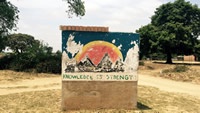
Through improved data, the work aims to improve the ability health systems to respond to the needs of vulnerable and excluded populations through partnership approaches with communities and researchers.
Sickle Cell Anaemia Services for Children and Families
![]()
Funder: University of Aberdeen GCRF Pump-Priming and Impact Accelerator Fund
Duration: 1/11/2020 - 31/07/2021
Chief Investigator: Professor Lesley Anderson
UoA Co-investigators: Dr Lucia D'Ambruoso
Other Co-investigators: Dr Joao Camanda, Dr Francisco Antonio Macongo Chocolate, Dr Ruben Buco, Dr Lynne Lohfeld
Food Poverty
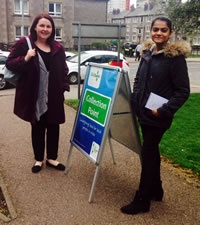
Lucia D'Ambruoso leads a study in North East Scotland learning from promising practices in and models of meaningful community participation, power and decision-making within the local health system in terms its response to the public health issue of food poverty. This is an international case study commissioned by the Training and Research Support Centre (TARSC) within the 'Shaping Health' initiative - supported by the Johnson Wood Foundation.
The overarching aim of the initiative is to gather substantive evidence on promising practices in and models of community participation, power and decision-making in health systems from selected high, middle and low income countries.
- Recent Project: Learning from international experience on approaches to community power, participation and decision-making in health
- Postgraduate student blog: ' Hunger Games: Looking for food in NE Scotland '
- Postgraduate student blog: ' Food poverty is not the problem and food banks are not the solution! '
Global Development
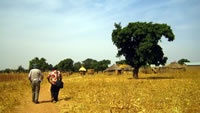
Professor Abbott currently leads a programme of research political and social transformations in Morocco, Algeria, Tunisia, Libya, Egypt, Jordan, and Iraq on Morocco, Tunisia, Algeria, Libya, Egypt, Jordan, and Iraq. Its aim is to understand and evaluate political, social, and economic transformations before and after the Arab Uprisings of 2010-2011 to inform policy with regard to political and social change in the Arab countries .
Professor Abbott is also the Director of the University's Centre for Global Development, a centre of excellence committed to equity, social justice and sustainable futures.
Maternal Health
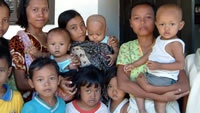
Prior to this work, Professor Graham led the Initiative for Maternal Mortality Programme Assessment (Immpact), a mulit-centre research programme to inform and influence policy, governance and practice, improve quality of care and strengthen capacity for maternal and child health in low and middle income countries.
Leprosy
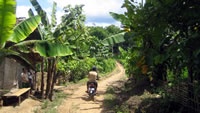
Professor Smith now works to sustain and enhance leprosy control activities to reduce the burden of disease through research and policy. Professor Smith also continues to teach, supervise, advise and mentor students at the University of Aberdeen.
